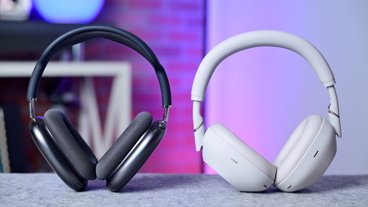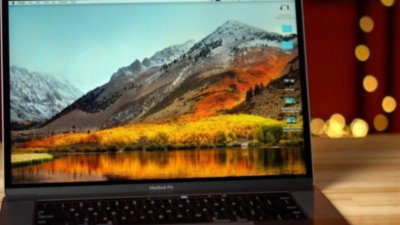A new Qualcomm-funded study claims Android phones with Snapdragon modems outperform the iPhone 16e C1 modem, and the comparison favors Qualcomm by design.
A new report commissioned by Qualcomm finds that Android phones equipped with the company's latest modems outperform Apple's iPhone 16e in 5G speed tests. The results, however, come with important context about pricing, test conditions and how these numbers translate to daily use.
According to Cellular Insights, Qualcomm-powered Android phones using Snapdragon X75 and X80 modems delivered up to 35% faster download speeds than the iPhone 16e. Upload speeds were up to 91% faster.
Testing took place on T-Mobile's sub-6 GHz standalone 5G network in New York City under varying signal conditions. Performance differences were minimal near cell towers but widened significantly indoors and in fringe areas.
Android phones supported four-carrier downlink and two-carrier uplink aggregation, combining multiple frequency bands for higher throughput. The iPhone, on the other hand, was limited to three-carrier downlink and lacked uplink aggregation.
The iPhone 16e frequently became hot to the touch during testing. While the study couldn't confirm whether heat directly impacted results, thermal limits are known to affect modem performance in extended real-world use.
Price and positioning distort direct comparisons
While the testing methodology may seem sound, the substantial sponsorship by Qualcomm raises concerns. The two Android phones tested were premium models, priced at $799 and $619.
The phones were equipped with Qualcomm's latest modems, which skews the results in favor of the sponsor. The iPhone 16e, by contrast, is Apple's $599 midrange model and its first device with a fully custom modem, that's not yet intended for premium devices.
That makes direct price comparisons less meaningful.
Apple's iPhone 16 Pro models, which still rely on Qualcomm modems and offer advanced antenna tuning, improved thermal design and mmWave 5G support, weren't included in the study.
 Android phones reached higher peak 5G speeds than the iPhone 16e at both the modem and user levels. Image credit: Cellular Insights
Android phones reached higher peak 5G speeds than the iPhone 16e at both the modem and user levels. Image credit: Cellular InsightsBy leaving out those models, the comparison pits Apple's entry-level modem against Qualcomm's flagship designs.
The iPhone 16e also lacks mmWave 5G entirely, meaning it can't connect to the fastest 5G networks typically available in stadiums or dense urban areas. For most users, that limitation won't matter, as mmWave coverage remains sparse, so it's not clear how this impacted the study.
Real-world results vary by network and use case
Despite some shortcomings in the test, Apple's C1 modem has shown more competitive performance in other studies. Independent testing has found that the iPhone 16e can match or even exceed Qualcomm-powered models on AT&T and Verizon when signal strength is good.
In weak coverage zones, though, Apple's modem falls behind. One review found the iPhone 16e managed just 10 Mbps in a supermarket, while a Qualcomm phone in the same spot reached over 200 Mbps. These results suggest Apple's early modem is still catching up to more mature designs.
Other factors, such as Apple's antenna design, power management system and thermal constraints, also play a role in shaping real-world performance. The C1 modem's integration may improve over time, but for now, it lags in demanding network environments.
For most users, modem performance is just one piece of the overall experience. The study shows that Apple's modem strategy still has ground to cover, particularly when it comes to sustained speed under stress.
 Andrew Orr
Andrew Orr







-m.jpg)






 Charles Martin
Charles Martin
 Wesley Hilliard
Wesley Hilliard
 Malcolm Owen
Malcolm Owen
 Marko Zivkovic
Marko Zivkovic

 Amber Neely
Amber Neely
 Mike Wuerthele
Mike Wuerthele








18 Comments
As I've said before - there are so many variables when it comes to cellular reception and data rates that it's virtually impossible to make meaningful comparisons.
From the data I've seen on the C1 modem it's close enough that real world variations would overshadow any differences between it and QC's modem for the majority of users.
Qualcomm have always been the best modems. Very disappointing that Apple is trying to incorporate inferior technology in iPhone. Apple always has to try and save a few cents - and yet still charge the highest price for a product.
I don’t care about speeds. It makes little difference. I rather want less watts.
Unsurprisingl. The C1 is new tech based on Intel’s unsuccessful modem tech. But like all Apple products, give it a few iterations to work out the bugs, and better consolidation. Like the M1, it wasn’t the best when it shipped - but it was damned fine. But look at the M4 MAX… it destroys all other CPUs on the critical Single Core benchmarks. And its GPU is way up there too. Just give Apple time, and by the time the C4 ships, it’ll blowup the competition.
Getting rid of Qualcomm, Intel, Samsung, Nvidia, Google, IBM, Motorola of Schaumburg. Illinois, Elon and Microsoft is worth the price long term when it comes to advancing your profitable infrastructure/ecosystem. It’s why this group (those left standing) keep trying to attach themselves to Apple ecosystems on their terms even if it means they have to petition governments for help doing so….
Thru iteration the Apple modem will advance to C2, C3 and beyond just like everything else Apple Silicon, and Apple OS (all five ecosystems). The M5, M6, and R2 are going to be fun upon introduction.